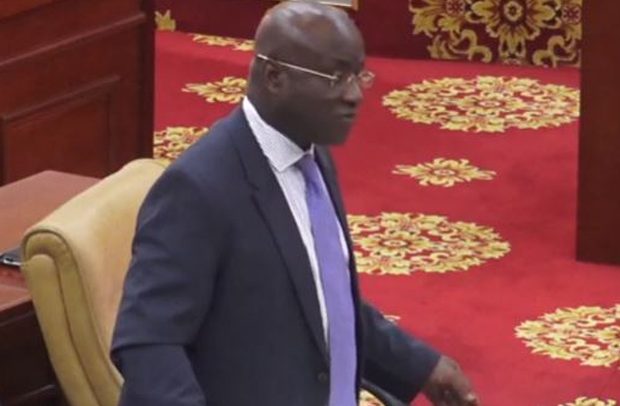Osei Kyei-Mensah-Bonsu
The Majority Leader, Osei Kyei-Mensah-Bonsu, has said the provision of water is an acid test for human improvement and that delivering potable water to the population is a good venture.
He has consequently urged the Minister of Sanitation & Water Resources, Cecilia Abena Dapaah, to have a second look at mining activities in the Pra River in the Eastern Region.
Speaking on the Floor of Parliament yesterday, Mr. Kyei-Mensah-Bonsu said that the headwaters in the Pra River were getting polluted “because somebody has started mining there.”
The House was considering the report of the Finance Committee on the OeKB-backed loan facility agreement between the government and Commerzbank Aktiengesellschaft (with premium support) and a commercial loan for a total amount of €81,233,423.00 to finance the Sekondi-Takoradi Water Supply Rehabilitation & Expansion project.
“Mr. Speaker, we should be careful and I will strongly urge the Minister of Sanitation and Water Resources to have a second look at it and if we have to fall on River Pra, as I said, we have to be much more determined to stop mining operations in both Offin and Pra Rivers so that the integrity of the waters could be attested to,” he stated.
According to him, he is afraid the project would not come off as planned if mining operations in the Pra River are not checked.
The House subsequently approved the €81,233,423.00 made up of €70,733,423.00 OeKB-backed loan facility agreement and commercial loan facility agreement of €10,500,000.00
The two agreements were presented to the House on October 18, 2020 by the Deputy Minister for Sanitation & Water Resources, Patrick Yaw Boamah, on behalf of his minister.
The existing Sekondi-Takoradi Water Supply System supplies water to the twin cities and their surrounding towns and villages with treatment plants at Inchaban and Daboase which were built in 1928 and 1969 respectively.
The water supply systems are based on surface water from the Anakwari River and the Pra River, and have installed capacity of 45,000m3/day but the current production is estimated at 30,000m3/day.
The Finance Committee, in its report, said the Sekondi-Takoradi Metropolitan area had witnessed one of the most dramatic growth rates in the country, increasing from about 372,391 inhabitants in the year 2000 to 559,548 in 2010 (G55, 2010); a trend which appears likely to hold as the city continues to discover greater potential for socio-economic growth.
The committee observed that the current average daily water supply for the Sekondi-Takoradi supply area is estimated to be 30,000m3/day (from surface water: Daboase and Inchaban) although the current demand is about 100,000m3/day, implying that there is a demand-supply gap of about 70,000m3/day.
“This situation compels the majority of the inhabitants to resort to other water vendors for their water needs,” the report indicated and added that these alternative water sources are more expensive and sometimes have negative health effects, if not handled properly.
Given the projection that water demand in the metropolis will increase to 200,000m3/day by 2040, it is imperative that the water system is expanded.
By Ernest Kofi Adu, Parliament House

